|
“What should we do?” the crowds ask John the Baptist in this Sunday’s Gospel. This simple question permeates our earthly lives. What should we do with our time, treasure, and talent? What should we do in school, in our careers, in our community? What should we do with our lives? As we prepare to celebrate the Third Sunday of Advent, we can look to the Scriptures to help us answer this resounding question. In the readings for Sunday, we hear responses that can be boiled down to two words: “rejoice” and “give.” These words can guide not only our Advent journey, but our entire spiritual lives. “Rejoice in the Lord always,” St. Paul writes to the Philippians in the second reading. This is not a suggestion, but a command—one coming from a man who has experienced beatings, stoning, shipwreck, cold, hunger, and robbery. This call comes from a man who, by human standards, has no cause to rejoice. What, then, sets Paul apart from the average human person? A relationship with Jesus Christ. It is this relationship, which nothing can break, that enables us to rejoice regardless of our circumstances. During this time of year, it is fitting to be merry and to rejoice. Decorations and lights fill stores and homes, festive music plays, and social engagements abound. The world rejoices over the coming of our Savior on Christmas Day. He has already come and opened the doors of salvation, and he continues to invite each generation into this wonderful gift as we celebrate his birth each year. But what does this rejoicing look like for Christians? Herein lies the second piece of advice from this Sunday’s readings: rejoice through giving. This, too, is something our culture thinks about during the Advent and Christmas seasons. We participate in “Secret Santa” gift exchanges with friends or colleagues; our parishes collect gifts for families in need; we exchange gifts on Christmas Day with family and loved ones. The prayer attributed to St. Francis says, “it is in giving that we receive.” Do we not feel this in a special way at Christmas time? The capacity with which we rejoice cannot exist in its fullness without our capacity to give. The more fully our “kindness is known to all,” as St. Paul wrote to the Philippians, the more fully we experience the true joy that comes from Christ. Our acts of service make us more capable of truly rejoicing. The Christian life is one of both prayer and action. In the Gospel, John the Baptist directs the Jews asking him “what should we do?” to works of mercy--Catholic Social Teaching in seed form. “Whoever has two tunics should share with the person who has none. And whoever has food should do likewise…Stop collecting more than what is prescribed…Do not practice extortion, do not falsely accuse anyone, and be satisfied with your wages,” he responds to the crowds, tax collectors, and soldiers. These seem like simple, almost obvious, directions. But we need to be reminded of them again and again. This Advent, may we be “filled with expectation” as we rejoice in Christ. As we seek to answer “what should we do?”, let us ask for the intercession of St. Paul and St. John the Baptist to more fully rejoice by modeling kindness through our daily acts of service and charity. Questions for Reflection: How are you rejoicing this Christmas season? How can you participate in the spirit of giving?
0 Comments
5/9/2018 Everyday Holiness (Part 2): 10 Quotes from Pope Francis' Apostolic Exhortation to Help You Be Holy in Today's WorldRead NowOn April 9, the Solemnity of the Annunciation of the Lord, Pope Francis released his latest Apostolic Exhortation: Gaudete et Exsultate (Rejoice and Be Glad): On the Call to Holiness in Today’s World. This is the third Apostolic Exhortation of his papacy, following Evangelii Gaudium, the Apostolic Exhortation on the Proclamation of the Gospel in Today’s World and Amoris Laetitia, a post-synodal Apostolic Exhortation on Love in the Family. What was his goal? “To re-propose the call to holiness in a practical way for our own time, with all its risks, challenges and opportunities" (GE 2). Without delving too much into a theological or heady definition of holiness, Pope Francis invites us simply and straightforwardly to open ourselves to the specific and unique mission God has created us for. In this, he says, lies true joy and freedom. Our Holy Father takes us back to the Source of Holiness, Jesus Christ, and encourages us to look to the Beatitudes as guides for holiness. Below, I’ve compiled some of my favorite quotes and key take-aways from this approachable, yet profound, exhortation. 1.“A person’s perfection is measured not by the information or knowledge they possess, but by the depth of their charity.”-GE 37 It is tempting to leave the task of holiness to theologians, the clergy, or those who work for the institutional Church. Here, Pope Francis reminds us that holiness is not all about intellectual knowledge, our ability to quote the latest Church document, or the Catechism. While knowledge of the Faith certainly is important, our holiness is measured by the amount of love with which we infuse all of our actions. I can’t help but think of St. John of the Cross’s quote: “In the twilight of life, God will not judge us on our earthly possessions and human successes, but on how well we have loved. 2. “Jesus explained with great simplicity what it means to be holy when he gave us the Beatitudes (cf. Mt 5:3-12; Lk 6:20-23). The Beatitudes are like a Christian’s identity card…In the Beatitudes, we find a portrait of the Master, which we are called to reflect in our daily lives.” -GE 63 I love that Pope Francis ultimately leads us to Scripture and to Jesus Christ Himself as the model and teacher of holiness. It can get overwhelming trying to be holy and define holiness in our modern world. The Beatitudes, Pope Francis says, are like a “Christian’s identity card.” They point us directly to holiness and guide us along the way. Spending time reflecting on each of the Beatitudes will help us to better understand what it means and looks like to be holy. 3. “It is true that the primacy belongs to our relationship with God, but we cannot forget that the ultimate criterion on which our lives will be judged is what we have done for others. Prayer is most precious, for it nourishes a daily commitment to love. Our worship becomes pleasing to God when we devote ourselves to living generously, and allow God’s gift, granted in prayer, to be shown in our concern for our brothers and sisters.” –GE 104 Here, Pope Francis is reminding us that our prayer must lead to action. We cannot be holy in a vacuum, but are called to live out holiness amidst our brothers and sisters. Service to the world, as promoted by Catholic Social Teaching, is crucial if we are to be true followers of Christ. While our relationship with God always comes first, this relationship turns our gaze outward in order to foster and build relationships of love, service, and communion with our brothers and sisters. 4.“Far from being timid, morose, acerbic or melancholy, or putting on a dreary face, the saints are joyful and full of good humour. Though completely realistic, they radiate a positive and hopeful spirit.” -GE 122 Holiness leads to joy – this is the true fruit of our living a holy life. As Christians, we are called to exude the joy of the Resurrection and of the Gospel in the midst of a world plagued by sin, brokenness, and suffering. While holiness is joyful, is does not exist in an alternate reality, but embraces the truth of the world in which we live. Pope Francis says that this holiness is “realistic” and allows us to engage the world while still looking beyond it to the glory of eternal life. 5. “God is eternal newness. He impels us constantly to set out anew, to pass beyond what is familiar, to the fringes and beyond. He takes us to where humanity is most wounded... God is not afraid! He is fearless! He is always greater than our plans and schemes. Unafraid of the fringes, he himself became a fringe (cf. Phil 2:6-8; Jn 1:14). So if we dare to go to the fringes, we will find him there; indeed, he is already there.” –GE 135 The theme of going outside our comfort zone has been one Pope Francis has promoted since the beginning of his papacy. He calls us as Christians and as the Church to wake up, open our doors, and shake the dust off ourselves by imitating God who is “eternal newness.” Holiness, therefore, means being active, bold, and unafraid. It means meeting Christ in the fringes of society and finding him outside the confines of our Church walls. 6.“Let us allow the Lord to rouse us from our torpor, to free us from our inertia. Let us rethink our usual way of doing things; let us open our eyes and ears, and above all our hearts, so as not to be complacent about things as they are, but unsettled by the living and effective word of the risen Lord.” –GE 137 Here, Pope Francis continues to invite the Church to an examination of conscience. Are we doing things out of habit, because we’ve always done something a certain way, or are we open to the promptings and workings of the Holy Spirit as we approach our task of holiness and evangelization? The example and word of Jesus Christ should always “unsettle” us to some degree. We do not achieve perfect holiness at some point in our life and then rest on our haunches! The journey lasts throughout our lifetime. 7.“Are there moments when you place yourself quietly in the Lord’s presence, when you calmly spend time with him, when you bask in his gaze? Do you let his fire inflame your heart? Unless you let him warm you more and more with his love and tenderness, you will not catch fire. How will you then be able to set the hearts of others on fire by your words and witness? If, gazing on the face of Christ, you feel unable to let yourself be healed and transformed, then enter into the Lord’s heart, into his wounds, for that is the abode of divine mercy.” -GE 151 I love this passage from Gaudete et Exsultate. Pope Francis takes on a more reflective tone here and invites us to be prayerful along our journey to holiness. He gets to the heart of holiness by asking us some profound but unavoidable questions. Essentially, he’s asking if we have truly encountered Jesus Christ and his infinite love. This is fundamental to holiness, for our encounter with Christ’s love is what will carry us forward on our journey and sustain us. Take some time to pray with these questions and ask the Lord for a deeper encounter with his love. 8.“For this spiritual combat, we can count on the powerful weapons that the Lord has given us: faith-filled prayer, meditation on the word of God, the celebration of Mass, Eucharistic adoration, sacramental Reconciliation, works of charity, community life, missionary outreach. If we become careless, the false promises of evil will easily seduce us.” –GE 162 As with any journey, we will encounter setbacks and temptations as we strive for holiness. Pope Francis devotes a section of his exhortation to the reality of evil and our need to acknowledge it. Pursuing holiness also means engaging in spiritual combat. We not only face our own weaknesses or the sins of others, we also face an actual opponent: the devil. Here, Pope Francis encourages us to count on “the powerful weapons that the Lord has given us.” We are not alone as we face evil, but find our strength in the Church, the sacraments, our brothers and sisters, etc. 9. "Discernment is necessary not only at extraordinary times, when we need to resolve grave problems and make crucial decisions. It is a means of spiritual combat for helping us to follow the Lord more faithfully. We need it at all times, to help us recognize God’s timetable, lest we fail to heed the promptings of his grace and disregard his invitation to grow." –GE 169 Discernment is a way of life. It means inviting the Lord into our actions and decisions and asking for his guidance as we go about our day. Pope Francis reminds us that discernment is not reserved only for major life decisions such as a move, our vocation, a job opportunity, etc. Discernment should be engrained into our spiritual life and helps to ensure that we are living our lives according to God’s plan rather than our own. 10.“Mary is the saint among the saints, blessed above all others. She teaches us the way of holiness and she walks ever at our side. She does not let us remain fallen and at times she takes us into her arms without judging us. Our converse with her consoles, frees and sanctifies us.” -GE 176 We cannot pursue holiness without looking to the perfect model of human holiness: the Blessed Virgin Mary. Pope Francis concludes his exhortation by inviting us not only to look to Mary, but to go to her and build a relationship with her. She always guides us closer to her Son. Mary is a gift to us given by Christ himself to journey alongside us on the path to heaven, don’t forget to use her as a resource! **This is part two of a two-part series of quotes from Pope Francis’ latest Apostolic Exhortation: Gaudete et Exsultate. For more information and resources on Gaudete et Exsultate, please click here. Questions for Reflection: How does Pope Francis challenge your idea of holiness? Do you agree with the Holy Father’s definition? Where do you see holiness being lived out today? This past September, a colleague and I traveled to three cities in the U.S. to discuss with local ministry leaders ways in which Catholic Relief Services (CRS) could engage young adults. Our basic question was this: How can CRS contribute to the conversations folks in their 20s and 30s are already having around issues of peace, justice, and global solidarity? Two very clear, and slightly discordant, ideas emerged. The first: folks in their 20s and 30s want to offer their time to serve those in need. The second: we as Church might do better to shift from doing good for a world in need to being good for our world. What do I mean by this? The instinct to do good—to be a service to others, to give of ourselves, to respond in charity to the Gospel invitation to love our neighbor—is something to be applauded. In fact, integrating service into young adult ministry was a priority we heard time and again during our conversations. But not all world-changing, do-good ideas are created equal. In fact, some can be quite harmful. (For one example from some of CRS’ work that illustrates this general point, check out our Changing the Way We Care initiative on orphanages.) I’m not saying we shouldn’t dedicate time, talent, and treasure to helping those in need—both in our own communities and around the world. But we should challenge ourselves to be intentional about our initiatives, to investigate the real impact of our efforts—both intended and unintended. We should also ask ourselves who we are really serving: our own sense of self-worth or the real common good. I write all this by way of reflection on Pope Francis’ calling for a World Day of the Poor, the first of an annually recurring day that begins November 19, 2017. (Click here to read about it in the pope’s own words.) When we think of poverty, our knee-jerk reaction may be to rush to the nearest shelter with old clothes in hand. It may be to donate to a worthy cause. It may be to jump on a plane and fly across the world ready and able to build a house for a family without one. None of those things are bad, right? People need and deserve clothing and shelter, and charitable donations fuel so many organizations like my own. But intentionality demands that we challenge our own assumptions. Is the local shelter looking for the kinds of clothing I’d like to give, and do they have capacity to sort through them? Does that distant country need me to build a house, or is there a local engineer who is better able to accomplish the job? Do I know what percentage of donations an organization puts toward actually helping those in need? These are questions I myself have had to wrestle with, and the answers are different in every situation. But they must be asked. Why? Because they help me remove my own ego from the situation and instead make room for the true needs—and solutions—of others. Pope Francis challenges us to go beyond the doing—which is unmistakably important—to inhabit a new way of living: “We may think of the poor simply as the beneficiaries of our occasional volunteer work, or of impromptu acts of generosity that appease our conscience. However good and useful such acts may be for making us sensitive to people’s needs and the injustices that are often their cause, they ought to lead to a true encounter with the poor and a sharing that becomes a way of life.” So, then, as we reflect on this first World Day of the Poor, I challenge all of us to not simply do good, but to be good—to integrate God’s vision for humanity not simply into our acts of charity but into our daily choices, our lifestyles, and our long-term goals. Question for Reflection: How can you follow Eric's advice and not only do good, but be good? Interested in joining CRS in conversation around these issues? Join our new initiative for folks in their 20s & 30s CROSSROADS en el camino. To learn more about Catholic Social Teaching, please click here.
 When you are preparing to graduate, you have lots of options. This series from the Catholic Volunteer Network highlights people who chose service, and how the volunteer experience has made an impact on their lives. Name: Faith Yusko Volunteer Program: Bon Secours Volunteer Ministry Location: Baltimore, MD Hometown: West Islip, NY College: The University of Scranton, Class of 2016. International Studies Major How did you first learn about post-graduate service? I learned about post-graduate service through friends and role models of mine who have done post-graduate service. What other options were available to you, and why did you decide on your service program? I had considered jumping directly into the work force, but I definitely felt called to serve others through volunteering and I wanted to deepen my spiritual growth and development! Tell us about your service experience. I serve as a Child Care Aide in the Bon Secours Early Head Start Child Development Classroom. In my role I work as part of a team serving children ranging in age from two months to three years old and their families. This program helps support families and children so that they can develop a love of learning to carry with them throughout their lives. My fellow volunteer community members and I live and serve in West Baltimore, and have been learning from the pillars of our program centered around practicing God's justice, learning through service with others, developing community, growing spiritually, and living simply. In addition to allowing me to share my gifts, my service year has humbled me through the community I am learning from and that I am a part of. What benefits have you gained from this experience that you might not have received otherwise? I am learning different ways to apply Catholic Social Teaching and spiritual well-being practices into my everyday life. It has helped me to continue to grow spiritually after transitioning out of a Catholic undergraduate institution. What advice do you have for someone considering post-graduate service? Take the leap of "Faith" and you won't regret it! There are opportunities to learn and grow through service each day! Question for Reflection: How has an experience of service impacted your personal life or faith? *This post was originally published on the Catholic Volunteer Network Blog and was re-posted with permission. To learn more about post-grad service opportunities, check out Catholic Volunteer Network's RESPONSE directory, listing thousands of opportunities across the United States and abroad. To learn more about Catholic Social Teaching, please click here. “We have forgotten that we ourselves are dust of the earth (cf. Gen 2:7); our very bodies are made up of her elements, we breathe her air and we receive life and refreshment from her waters. (2)” – Pope Francis, Laudato Si’ This past weekend in the United States we celebrated Earth Day. Earth Day was founded in 1970 as a call to action to bring greater awareness to environmental issues. It continues to serve as a reminder to us of our place on the earth and our responsibilities as its current inhabitants. The Catholic Church has taken a strong stance on the importance of preserving our planet and has highlighted the necessity of caring for creation as one of the tenets of Catholic Social Teaching. A document of the USCCB teaches that: “To ensure the survival of a healthy planet, then, we must not only establish a sustainable economy but must also labor for justice both within and among nations. We must seek a society where economic life and environmental commitment work together to protect and to enhance life on this planet.” Pope Francis has also taken steps to highlight the necessity of caring for our environment. In 2015, he released his papal encyclical on the environment entitled Laudato Si’ – On Care for our Common Home. In this encyclical, he points out our moral obligation as Catholics and as humans to care for our environment. But what can we do as people of faith to preserve the earth? What steps can we take in our daily lives to protect the world God gave us? Go outside. Experience the beauty of the earth by taking some time to be in nature. Go for a walk in your neighborhood and look at the diversity of the flowers and trees. Spend some time in prayerful contemplation near water, in the mountains, or in your own backyard. Read Laudato Si’. Pope Francis’s encyclical highlights the ways we are required as Catholics to work to save and protect the environment. He puts into words the importance, particularly at this point in history, of caring for the earth. He highlights specific problems that threaten the environment and offers suggestions for action. The Catholic Apostolate Center has a resource page on Laudato Si’ that includes a general overview of the encyclical, as well as other helpful links, news articles, and documents supporting or explaining Catholic teaching on caring for our environment. Pray with the Psalms. In particular, I invite you to pray with Psalms 8, 22, 24, 50, 65, and 84. Adding these words of Scripture to our regular prayer will help to inspire a greater desire to do more to preserve our environment. Turn off your lights and water when you are not using them. Do these and other small actions in your daily life to minimize your carbon footprint. Learn about St. Francis of Assisi. When he was elected pope in 2013, then-Jorge Bergoglio took the name of Francis because he was inspired by the life and example of St. Francis of Assisi. When writing Laudato Si’, he again took great inspiration from St. Francis: “Francis helps us to see that an integral ecology calls for openness to categories which transcend the language of mathematics and biology, and take us to the heart of what it is to be human.” (11)  Sometimes it is not one or the other, but rather both/ and. I have been thinking and praying about this a lot over the last two weeks. I live on Capitol Hill in Washington D.C. and have witnessed some of the largest marches and demonstrations that I have seen in the last twenty years. I’ve also been reading a lot of signs that the marchers and protesters carried. If you looked only at the signs, you would think we live in a world defined by competing principles and all of us are being called to take sides and battle it out until one side goes down in defeat. This serves no one well.Some of our most volatile issues of the day are not a battle of competing goods, but rather a battle that accepts no middle ground. We often lack the humility to recognize we might actually be talking about complementary principles and goods. For example, take the question of immigration. Most people would agree that a country has a right to secure its borders and most people agree that we have an enormous problem at present where many people’s homelands have become unlivable. Most people would agree that people have a right to seek justice and peace, in a safe community. It seems the discussion we should be having is how we manage to control our borders and respond to the need for safe passage to safer communities for millions of refugees who are displaced from their homelands. Who is having that conversation? Well, the Catholic Church, for one! Our faith is grounded in balancing in a life-giving creative way the tension of both/and. After all, we talk about how belief is rooted in faith and reason. We believe that justice should be wrapped in mercy. We know that with sin, there is always the possibility of grace. This ability to see the complementary goods has never been on bigger display than this past week. The week began with the United States Conference of Catholic Bishops issuing a strongly worded statement opposing President Trump’s executive order on Immigration. They write “We strongly disagree with the Executive Order’s halting refugee admissions. We believe that now more than ever, welcoming newcomers and refugees is an act of love and hope.” Here the Church draws on its principles of Catholic Social Teaching which holds both the right of people to migrate to “sustain their lives” and the right of a country to “regulate its borders and control immigration” (Catholic Social Teaching on Immigration and the Movement of Peoples). In the same week, many bishops and Catholic Pro-Life marchers welcomed the presence of Vice-President Pence who supports the work of the Pro-Life Movement. The Church both preaches against the sin of abortion and the right of every woman to have all the support she needs from the government and community to bring her child into the world. The Church will continue to advocate against abortion and, through ministries like Project Rachel, offer healing and hope to women and men touched by the experience of abortion. These two issues in the span of a week, highlight what many people find so confounding about the advocacy of the Catholic Church on behalf of social issues. We seem to some to be “always changing sides.” And that is just it, we don’t take sides. We stand in the truth of the Gospel of Life. Rather than getting tied up in political platforms and ideologies, the Church looks to the Gospel and in the harmony of truth and reason seeks always and everywhere to protect the dignity of the human person through the exercise of mercy and justice. Now, more than ever, our country needs the wisdom of a church that can navigate toward the common good by exercising both/and. We need to identify the common good within the issues on which we are so quick to take sides– and work together toward a shared good. What does a country look like that has a secure border and the ability to welcome people seeking peace, a job, a place for their children to thrive. What do support networks look like that would say we are a community who know women deserve better than having to choose an abortion and can provide for their care. What does a country look like that can promote the dignity of the human person and the common good of the community? These are questions that the Church has thought about for centuries and has some wisdom to share. Pope Francis believes that sharing that wisdom is part of our mission to the world today. He writes in The Joy of the Gospel, “Despite the tide of secularism which has swept our societies, in many countries – even those where Christians are a minority – the Catholic Church is considered a credible institution by public opinion, and trusted for her solidarity and concern for those in greatest need. Again and again, the Church has acted as a mediator in finding solutions to problems affecting peace, social harmony, the land, the defense of life, human and civil rights, and so forth. And how much good has been done by Catholic schools and universities around the world! This is a good thing! (65). Today, we all have an opportunity to bring this good thing to bear in our conversations and in our advocacy. Let’s be one of those schools! This post was originally published on the St. Joseph's College of Maine Theology Blog and was re-published with permission.
As we remember Rev. Martin Luther King Jr. on this American federal holiday, I invite you to join me in reflecting on his dream for the United States and for the world. Rev. King fought for equality and justice in the United States using nonviolence. He helped empower American society to look past differences and come together through love by leading people in prayer and using words paired with non-violent actions. As a Baptist minister, Rev. King upheld Christian ideals and spoke to the hearts of all those facing injustice. He personally felt and lived through discrimination and had his share of fear and uncertainty. Yet through these hardships, he led others to see truth in justice and civil rights by organizing non-violent marches and protests, and by preaching unity.
Much of what Rev. King said through his words and his non-violent actions can be compared to the teachings of Christ. In the Gospel of John, for example, Peter tries to defend Jesus from a large crowd trying to arrest him in the Garden of Gethsemane. Jesus tells Peter to “put the sword in its sheath” and in Matthew’s Gospel adds, “all those who take up the sword shall perish by the sword.” In doing so, Christ tells Peter that fighting back with the same means as the enemy will get him nowhere. Earlier in Matthew’s Gospel, while he was preaching about the Beatitudes in the Sermon on the Mount, Jesus reminded his disciples, “You have heard that it was said, ‘Love your neighbor and hate your enemy.’ But I tell you, love your enemies and pray for those who persecute you, that you may be children of your Father in heaven” (Matthew 5:43-45). Christ preached forgiveness through love and mercy throughout his ministry and demonstrated this in a powerful way throughout his arrest and Passion. Jesus demonstrated how love can change hearts and save lives. Martin Luther King Jr. imitated this response. His promotion of unity has had powerful repercussions on our society that are still felt to this day. Unfortunately, discrimination in various forms continues. Our next generation sees pain, division, and fear in the news and TV shows, on social media, and even sometimes right outside their doors. However, those who cultivate empathy for others can make Rev. Martin Luther King Jr.’s dream come true today and breathe life into Christ's teachings in the Gospel. So how can you empower the nation with love? How can you teach through your actions how to live out Christian values and Catholic Social Teaching? In what ways can you help bring understanding and empathy to others? I invite you to reflect on the Beatitudes from Jesus’ Sermon on the Mount (Mt. 5:3-10) as a way to embark on this journey toward building peace! “Now when Jesus saw the crowds, he went up on a mountainside and sat down. His disciples came to him, and he began to teach them. He said: 'Blessed are the poor in spirit, for theirs is the kingdom of heaven. Blessed are those who mourn, for they will be comforted. Blessed are the meek, for they will inherit the earth. Blessed are those who hunger and thirst for righteousness, for they will be filled. Blessed are the merciful, for they will be shown mercy. Blessed are the pure in heart, for they will see God. Blessed are the peacemakers, for they will be called children of God. Blessed are those who are persecuted because of righteousness, for theirs is the kingdom of heaven. Blessed are you when people insult you, persecute you and falsely say all kinds of evil against you because of me. Rejoice and be glad, because great is your reward in heaven, for in the same way they persecuted the prophets who were before you.” Please visit our website to learn more about Cultural Diversity, Catholic Social Teaching and Christian Unity. I had lived in Baltimore for only a few months when some friends came to town. They insisted we see the Inner Harbor, and so off we went, adventuring on foot. I’ll be very honest: having grown up in the suburbs of Philadelphia, I was still getting used to the number of individuals on the streets asking for money. My instincts always screamed: KEEP WALKING; DON’T MAKE EYE CONTACT; YOU HAVE NO MONEY TO GIVE. And usually by the time my inner voices settled down, I was a block or two past the questioner. But when my friends and I decided on crepes for lunch, I found myself unable to keep walking past the homeless man who was hunkered down directly in front of the door to our intended restaurant. In my mind, of course, it became a game of lowered eyes, mumbled replies and a quick grab for the doorknob. Not so, for my friends. While I was shuffling past the man and his quiet request for help, my two friends stopped, asked his name, and shook his hand. “I’ll tell you what, buddy,” my one friend replied. “I don’t carry any cash. But why don’t I buy you a crepe?” The gentleman thought that would be just fine, and so in we all went to place our orders. I don’t remember that man’s name, what we discussed, or what kind of crepe he got. But I do know that my comfortable, ready-made response to those I encountered on the streets asking for money suddenly became embarrassingly out-of-touch and morally questionable. What’s more, I was awestruck by the knee-jerk reaction of my two friends: where I cast my eyes down, they looked another human being in the face and smiled. If you hear anything about Catholic Social Teaching, you often hear that it’s the Church’s best kept secret. Why is that? Because we sometimes don’t realize that popes, theologians, saints and everyday Catholics have been thinking, praying, and writing about issues of hunger, war, poverty, and injustice for a very long time. And, as a result, we have a pretty elaborate, intellectually rigorous and philosophically challenging framework within which to address the most pressing issues of our day. So often, those who are in on this best kept secret are often intimidated because they think they need a degree just to wrap their minds around Catholic Social Teaching. Not so. Certainly don’t miss out on the chance to study these teachings, but prayer is what helps us get at the heart of the matter. I spent a lot of time over the following weeks reflecting on that encounter between me, my friends, and that man outside the crepe shop. Why was I so struck, so inspired? Could this have been what the disciples saw in Jesus, why they were so attracted to him? Did they see an individual who met the gaze of those in need with a smile and an outstretched hand? Let us take the person of Jesus—God, who we meet in prayer and life’s daily joys and struggles—and go from there. That’s the heart of Catholic Social Teaching. We realize that every person we come across in our day—those we intend to meet, and those who stop us for money—are lived expressions of God in our world, opportunities to meet Christ. It becomes a lot harder to ignore them. What’s more, we begin to see that as we encounter Christ in others, we find ourselves drawn deeper into the plight of those most in need. We ask ourselves, “how can such injustice be allowed to exist?” And God responds, “Well, then do something.” That’s now what I find myself forced to grapple with when I encounter individuals on the street, in the news, wherever. Because if I admit that we are all part of God’s family, that my existence here and your existence there are less about what we’re doing and more about what God’s doing, my perspective has to change. I have a responsibility to act, to live my life in a more intentional way. At Catholic Relief Services, we throw the word solidarity around like it’s a Frisbee on the beach. But that doesn’t make it any less important. It is, after all, a key element of Catholic Social Teaching. And it calls us to live beyond ourselves, to recognize God in all things and all people and to work for a world that is just and peaceful for all. And sometimes, that work begins with the guy you passed on the street outside the crepe shop who’s asking for some change. Want to learn more about Catholic social teaching? Check out these resources:
To celebrate the Catholic Apostolate Center passing 50,000 "likes" on Facebook, Communications and Social Media Intern Andrew Buonopane created a list of 50 Ways to Enjoy your Faith. This is the last post in a five-part series where we have shared the whole list! #10- Read Baptismal Promises During the Easter season, we are sprinkled with Holy Water during Mass and during the Easter Vigil we renewed our Baptismal promises with those who were being baptized that night. Take some time to go back and read those promises. How has your understanding of these promises evolved as you’ve gotten older? #9- Learn more about your Confirmation saint Even though you probably know something about your Confirmation saint when you chose him or her, learning more about them is a great way to strengthen your faith! #8- Learn more about your name saint Were you named after a particular saint? Spend a few minutes researching your name saint and learn about why your parents may have chosen to name you after him or her. #7- Devotion to Our Lady of Guadalupe, Lourdes, and Fatima Our Blessed Mother is known by many names and titles throughout the world. Our Lady of Guadalupe, Lourdes, and Fatima are just a few. What is your favorite devotion to Our Lady? #6- Learn more about Catholic Social Teaching We often hear talk about Catholic Social Teaching, but have you ever studied the tenants of Catholic Social Teaching? Try learning more about this important facet of our faith, one that Pope Francis has urged us to focus on! #5- Vocational Discernment Resources Not sure of your vocation in life? Check out our Vocational Discernment resources, or read through these great blog posts about vocations! #4- Joyfully TALK about your faith TALKing about faith is a great acronym to help with Evangelization. Tone it down, Assume the best intentions, Limit your claims, Keep to the issue. The New Evangelization calls for all of us to talk more about our faith. For more information, see our New Evangelization resource page! #3- Who Jesus Is: God and Man One of the core tenants of our faith is that we understand Christ as both Human and Divine. Reflect on what this might mean for your own understanding and encounter with Christ. #2- Receive Jesus Christ. #1- Say “Thank You” to The Holy Trinity! The God who is love has given us everything! It’s easy to pray to God for things we want or things that are troubling us, but never forget to pray simply to thank God for all his blessings!
To read the previous installments in this series, click here: Part I | Part II | Part III | Part IV Andrew Buonopane is the Communications and Social Media Intern at the Catholic Apostolate Center If someone were drowning, whether you knew how to swim or not, would you save them?
This is one of the sayings that Irena Sendlerowa’s father told her to remember and use as a model for her life. As a young Catholic social worker living in Nazi-occupied Poland during World War II, “Irena Sendler” made this question her life’s testament by saving Jewish children and orphans from the Warsaw Ghetto. January 27 is designated by the U.N. as International Holocaust Remembrance Day. This day of remembrance is appropriate for National Sanctity of Life Month. We may first think of respecting life in terms of the unborn, but being pro-life means honoring life in all stages. The horror of the Holocaust violated a respect for life. Many Catholics during this period of time understood the threat anti-Semitism brought to humanity. It’s not surprising many Catholics aided in protecting Jews and other targets of the Nazi Party. Irena Sendler was not a commonly known hero of the Holocaust until nearly a decade ago when four high school girls from rural Kansas created a 1999 National History Day (History Fair) performance focusing on the heroine. “We saw a 1994 U.S. News & World Report that was five years old [at the time we read it] with a clipping entitled, ‘Other Schindlers,’ and Irena Sendler was listed as saving at least 2,500 children,” said Megan Stewart-Felt, one of the four students who created Life in a Jar: The Irena Sendler Project. “ ‘Irena Sendler’ received one hit on Google in 1999,” said Felt. “Today I type in her name and have more than 767,000 hits.” Sendler’s work in saving Jews didn’t start with her efforts in saving children in the Warsaw Ghetto. As a young university student, Sendler made false documents for Jewish friends and others in the Warsaw area from 1939 to 1942 before she joined the underground Zegota, a Polish underground group to assist Jews. “Life in a Jar” describes perfectly the actions Sendler used to save Jewish children in the Warsaw Ghetto. Sendler, along with 10 others under her direction, implemented various tactics of getting children past Nazi guards. Several of these tactics included Sendler posing as a nurse taking “sick” or “dead” children out of the ghetto, smuggling a five-month-old baby in a carpenter’s box and using a barking dog to conceal the crying children, hindering Nazi guards from thoroughly examining the cargo vehicle. Sendler then adopted the children into homes of Polish families or hid them in Catholic convents, orphanages, and parish rectories. Priests and monks provided some Jewish children and adults with false baptismal certificates to pose as Catholics. AmericanCatholic.org quotes Szymon Datner, a Jewish historian, as saying about Catholic nuns, “No other sector was so ready to help those persecuted by the Germans. This attitude, unanimous and general, deserves recognition and respect.” To ensure the children would one day discover their true identity, Sendler made lists of the children’s real names and family information and concealed them in jars she buried in her garden. Nazi’s did capture Sendler. She was beaten severely and even scheduled for execution, but the Polish underground bribed a guard to release her and she entered into hiding. Sendler passed away at the age of 98 on May 12, 2008. Just one year before, Sendler was nominated for the Nobel Peace Prize in Oslo, Norway for her courage and valor in saving Jewish children. Additionally, Yad Vashem recognized Sendler in 1965 as Righteous Among the Nations. During National Sanctity of Life Month and International Holocaust Remembrance Day, it’s important to reflect and gain inspiration from everyday heroes, such as Irena Sendler, whose actions saved many lives, often at great risk to their own. Dana Edwards is a recent graduate of the University of Florida. She currently resides in Tallahassee, Florida where she works as a Digital Strategist, and volunteers as a lector and with communication outreach at her local parish, Good Shepherd Catholic Church. A few weeks ago, I attended a church presentation on Catholic Social Teaching by our deacon, Santiago Molina. The presentation was a series segment focused on family, community, and participation, and I thought it a perfect discussion topic for November and the upcoming “giving” season.
At the start of his presentation, Deacon Molina stated, “We have to respect others and their life; there is a relationship there. We need to be open to life. We are our brother’s keeper even if we don’t agree.” This prolife statement means more than opinions on controversial issues of abortion and death penalty decisions. Deacon Molina’s statement helped me to see my community in a different way. “A good society is a society that makes it easy to be good,” said Peter Kreeft, a professor of philosophy at Boston College. By going beyond ourselves and reaching out to others, we are actively assuming responsibility for those around us. We so often make decisions based on want rather than determining what is societal good. Paul’s letter to the Corinthians (1 Corinthians 13:1-13) comes to mind: “If I speak in human and angelic tongues but do not have love, I am a resounding gong or a clashing cymbal…If I give away everything I own, and if I hand my body over so that I may boast but do not have love, I gain nothing.” Agape, the Greek word for sacrificial love, is something we associate with family, a unit of love. While we begin loving our families selflessly, eventually God calls us to extend that same love to those in our community. “If we are open to the Holy Spirit,” Deacon Molina said, “and you feel you have more love to give, give yourself to your community.” As a recent college graduate, I found Deacon Molina’s words encouraging. Knowing small acts of kindness and any donation of time, talent, and treasure – whatever I can give – make a difference in my immediate community is empowering. “We believe people have a right and a duty to participate in society, seeking together the common good and well-being of all, especially the poor and vulnerable,” states the Sharing Catholic Social Teaching: Challenges and Directions reflections of the U.S. Catholic Bishops. “While public debate in our nation is often divided between those who focus on personal responsibility and those who focus on social responsibilities, our tradition insists that both are necessary.” How we organize our society directly affects human dignity and the capacity of individuals to grow in our communities. While it can be difficult at times to love our neighbor as ourselves, we must remember that we have a loving, social relationship with one another and in the end, we must follow our baptismal call to love. In closing, I wanted to share two videos we watched in the social teaching segment I attended. The first video is of a group of women in Mexico who help complete strangers on a passing train every day. The second video, while it is a foreign advertisement for life insurance, is probably one of the most moving commercials I have seen and truly shows the impact small acts of kindness have on our local community. These videos remind us that we do not need a lot of money or resources to show love for our neighbors, only that our love for others be selfless and put to use the time, talent, and treasures provided to us by God. The Thanksgiving season is a perfect time to think about our neighbors. Here are just a couple ways to think about helping out our neighbors this season: 1. Help out with your local Meals-on-Wheels or church service project 2. Donate your time in serving or cooking food for a shelter or food kitchen 3. Provide items to food pantries 4. Pray about what you are thankful for and remember to thank those around you 5. Invite someone to a Thanksgiving meal who perhaps doesn’t have family in the area or someone to celebrate the holiday with Dana Edwards is a recent graduate of the University of Florida. She currently resides in Tallahassee, Florida where she volunteers as a lector and with communication outreach at her local parish, Good Shepherd Catholic Church. For more information, visit the Catholic Apostolate Center Resource Page on Catholic Social Teaching "Business is a vocation, and a noble vocation, provided that those engaged in it see themselves challenged by greater meaning in life; this will enable them truly to serve the common good by striving to increase the goods of this world and to make them more accessible to all"
(Evangelii Gaudium, 203). Catholic Social Teaching is a core component of our Catholic faith. Its principles are rooted in the dignity of every human person and bring us together as a community, while creating relationships of love and respect. A few of the basic concepts that it encompasses are the life and dignity of the human person, a call to family and community, a preferential option for the poor and vulnerable, the dignity of work, and a care for God’s creation. We are called to uphold these principles in every area of our lives, not only in our personal affairs, but in our professional lives as well. It is easy to see how these Catholic principles can be applied to the way we interact with customers, coworkers, and shareholders. Businesses are commonly seen as seeking only to achieve higher profit margins, line the pockets of the executives, and expand their market share. By our Catholic standards, this is not an ethical foundation or what the purpose of any organization should be. The objective of a business should be to advance society by using its core competencies to fulfill a need, providing something valuable for society. This is not to say that businesses should not be profitable. Without profits, a company cannot exist. Instead of defining a company’s success solely by its profits, it should also be defined based on the value it adds to society and the way it treats any and all parties affected by its decisions. In other words, businesses should aim to serve the common good. One of the biggest competitive advantages is creating good relationships with stakeholders—any of those who are affected by a company’s business decisions. Whether the quality of its goods and services are high or its prices are competitive, good relationships with stakeholders are invaluable and often lead to higher market share for these companies. Therefore, applying the principles of Catholic Social Teaching is also beneficial to the business’ success and, in turn, the success of the shareholders. Today’s business world is highly competitive. As technology advances, businesses are required to act quickly when new ideas arise to obtain market share and stay afloat against competitors. With this need for quickly evolving business strategies also comes a tendency toward bending the rules and taking any measure necessary to beat out competitors. This can give a company a negative image, which is often difficult to reverse. On the other hand, a company that fights these temptations and follows the principles of Catholic Social Teaching will likely see success. Businesses should not be looked at as profit mongers, but instead as organizations who further develop society for the better. They must create this positive image, and as stakeholders we have a responsibility to hold companies accountable for their decisions and demand that they uphold ethical standards. For a good article on the Catholic University of America's recently formed School of Business and Economics, click here. Also, be sure to check out the Catholic Apostolate Center's resources on Catholic Social teaching by clicking here. Amanda White is a graduate of The Catholic University of America's School of Business and Economics I try to make it to weekday mass before work. One day recently, father spoke of self-possession. “We must fully possess ourselves to fully give ourselves.” For me, these words could not ring more true.
My service year thus far has been one of immense growth, complete with intense growing pains (I went from 5’4” to nearly 5’9” in middle school and I remember complaining to my father how much my knees and legs were hurting). Until mass that day, I didn’t connect that I’ve been learning, trial-by-fire, the important relationship between self-possession and self-gift. With my job as case manager at a residential high school for emotionally disturbed teenage boys, I can’t afford to live a life of extremes. I know what it’s like to go to work with little sleep (awful), I know what it’s like to go to work unprepared (stressful) and I know what it’s like to go to work in a bad mood (disastrous). This year is a crash-course in how to be an adult – I cannot get away with the disorganization that characterized my life for three-and-a-half of my four years of college. Then, I lived only for myself. Now, I have a duty to my community and to my students. I live for nineteen wild teenage boys, and whether or not they see or appreciate it, I need to be at my best every minute that I am at work. Self-possession, or self-discipline, is an important skill I am trying to acquire for the sake of myself and those I serve. Social service is a field that demands one to continually give of oneself. You give your time and attention to students with issues like, “I have a toothache and my mom’s insurance card isn’t working, can you make me an appointment?” to “I feel abandoned by my family and don’t want to be in this place” to irate calls from parents, to surprise visits from state agencies.. One is constantly giving time and attention to all types of people and situations. Self-discipline may have too much of an ascetic, medieval tone to it, but it is so very important for good work. I need to sleep. I need to smile and listen to others even when I don’t feel like smiling or listening. I need to do my paperwork in a timely manner. I need to read my work email instead of browsing the internet. I need to make sure I have time with friends so that I can be in a place of peace and happiness for my work. I need to model how to live a good life, so that when I give my students a hard time for playing 18 hours of video games over the weekend or for not communicating respectfully with their parents, I am not picking out their splinter in their eyes while the plank is in my own. We learn more from what people do than what they say. Our world is inundated with words, most of them pretty useless. Actions are more powerful, and someone who does what he or she preaches is the kind of person I might stop and listen to. Our faith has the most beautiful image of love: Jesus on the cross. That example of pure love, of most unselfish self-gift, moves me to action more profoundly than any words of a thoughtful hallmark card, any viewing of the Notebook, any poem of Elizabeth Barrett Browning (and I enjoy EBB!). Love in our faith is a dying to oneself for the sake of others and God. If I fully possess myself, I have grown in my ability to die constantly to myself. And if I have created that habit within, then I can more freely love and give to those around me. Jen Coe is a volunteer with the Catholic Volunteer Network, and a 2012 graduate of The University of Notre Dame. This post was originally written and posted on the Catholic Volunteer Network Blog. For more Catholic Volunteer Blog Posts please visit the CVN Blog Page. The Catholic Apostolate Center is proud to partner with the Catholic Volunteer Network by developing faith formation resources for volunteers and alumni, assisting in its efforts to provide and advocate for faith-based volunteerism and collaborate in many additional ways. Basketball and world peace… what do the two have in common?
As an athlete, I could tell you a lot about the positive benefits of athletics. There are many physical, emotional, mental, and social benefits and developments that come with participation in sports. As a softball coach for 8 years, I can also tell you about the many success stories that my players have had because of youth athletics. Through my years coaching, there is one story in particular that sticks out in my head, it was about 5 years ago, my Junior year of high school. One young girl, about the age of 9, joined my Little League softball team. She was one of the most difficult kids I had ever coached; between the arguing over every piece of instruction she was given, the fighting with the other girls, and the bad sportsmanship, which resulted in many games spent on the bench, we struggled. I was so frustrated with her, until things changed about 10 weeks into the season, when her grandmother came to me to say thank you. She told me that this girl’s father had left her and her mother wanted little to do with her. Her grandmother signed her up for softball to get her out of the house, and into something to bring her out of herself. She told me that the time, attention, and patience I gave this girl helped her cope with the immense difficulties she was facing at home. I went home and cried that night. To be honest, I would have never experienced any of this if my father hadn’t pushed me to influence other girls the way I had been influenced as a 7 year old girl by my coaches. He taught me to turn what I love into something I could give back to the community. I never fully realized the immense positive effect youth athletics had on children until that day. Thankfully, someone else did. Two men, Brendan and Sean Tuohey started the program Peace Players international. This organization used youth athletics, specifically basketball, to bring together developing communities and bring kids out of their homes to do something to create a better world for themselves. They created PPI – Peace Players international. What I want readers to bring back from this is the power of turning what you love into something greater than yourself. Brendan and Sean Tuohey turned what they were passionate about into a program working towards a bigger goal – international social justice. While God may not call you to something as large-scale as that, maybe he’s calling you to change the life of the little girl on the neighborhood softball team. Each person has a different calling to help change the world… what’s yours? Casey Tisdell is Senior Psychology Major at the Catholic University of America in Washington, D.C. It is no secret that when disaster strikes, human beings band together to take care of each other. Regardless of race, age, gender, or belief system people come together to help rebuild homes and people’s spirits. This held true in the wake of Hurricane Sandy: a hurricane that barreled up the eastern seaboard bringing destruction to parts of New Jersey and New York. Across the country, people held food and clothing drives to try and bring relief to the affected areas. In the midst of a tragedy faith, hope, and love were restored because of the actions of people across the country.
Thankfully, there was no damage done to my home when Hurricane Sandy hit, but some of my other friends were not as lucky. Their homes have been destroyed and all their memories have been washed away with the floodwaters. After talking to some of the people who did lose everything, they said their faith in humanity was restored through the charity of others. When they said it, I didn’t think much about it. But then I began to think of what the word charity and being charitable truly means. St. Francis of Assisi said, “Preach the Gospel, and if necessary, use words”. Charity is an action that embodies this idea. When sharing our faith and living out what it means to be a Catholic, we do not have to use words and preach to people. Instead, we can use actions to evangelize and show the world what it truly means to be a Catholic. Actions speak louder than words and this holds true for the New Evangelization. This has been true for years, but I have not seen it displayed as prominently as I have through the hurricane relief efforts. Regardless of age, people are pitching in and donating both time and money. Their actions are showing what it means not only to be charitable but also Christian. Young adults can use charity and Catholic Social Teaching to live out the New Evangelization not only during a time of crisis but during their everyday life. Catholic Social Teaching provides guidelines that people can use to live a just and moral life. Seven key themes of the Church’s social teaching include: life and dignity of the human person, call to family, community, and participation, rights and responsibilities, option for the poor and vulnerable, dignity of the rights of workers, solidarity and care for God’s creation. Catholic Social Teaching offers ways to live out our faith in everyday life and helps us in becoming tangible signs of Christ’s love. I tell my students everyday that what we learn in class does not stop when they walk out the door. We are all walking signs of God’s love and it is our mission to spread it to everyone. Through our actions let us work to restore faith, hope and love in our world and be part of this New Evangelization. Erin Flynn is a religion teacher at The Mary Louis Academy in New York. |
Details
Archives
July 2024
Categories
All
|
About |
Media |
© COPYRIGHT 2024 | ALL RIGHTS RESERVED



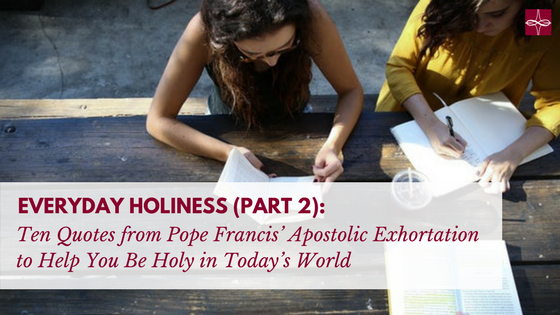

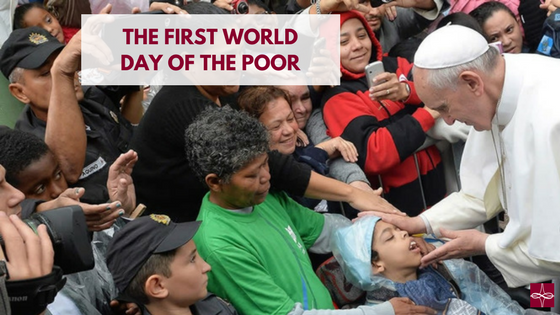

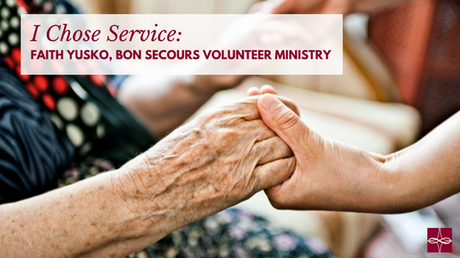
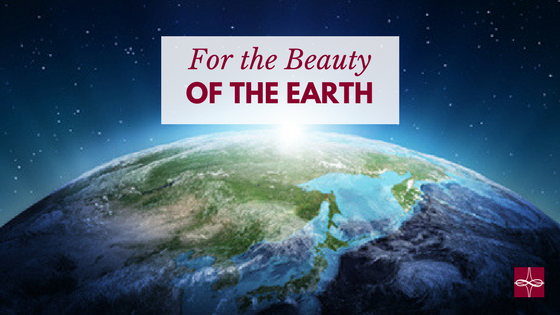

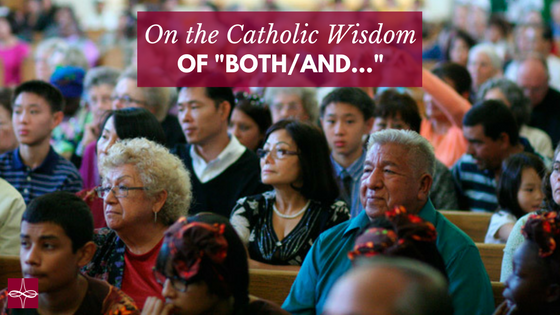
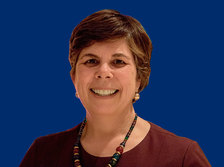
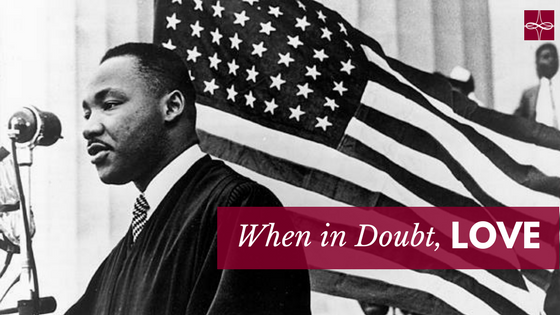

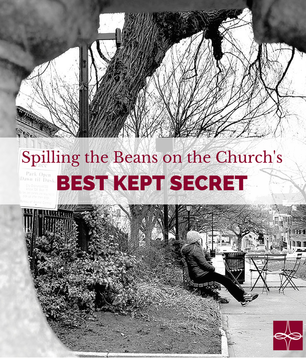


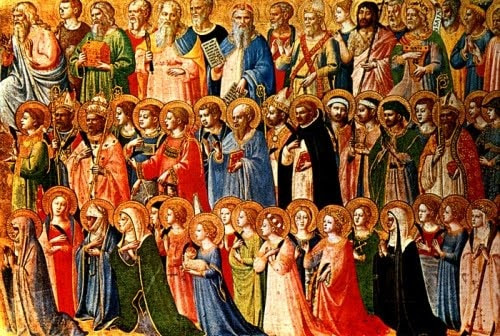
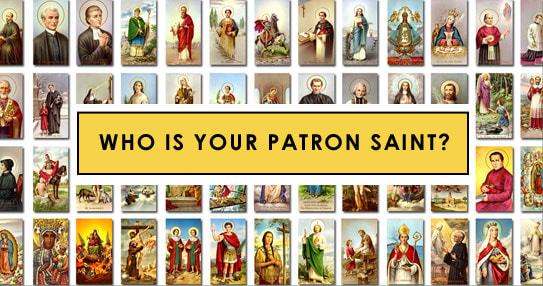
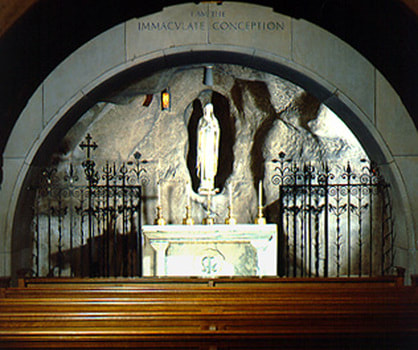
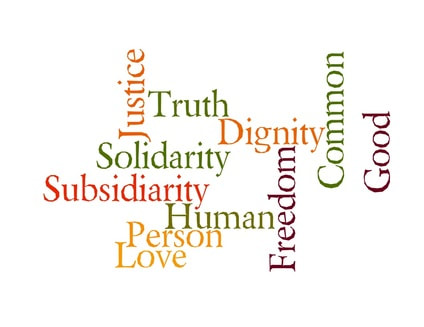

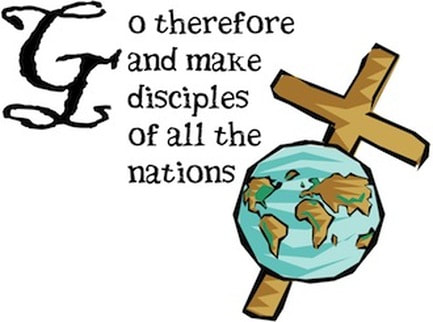
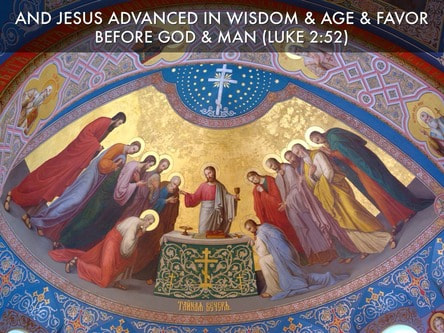
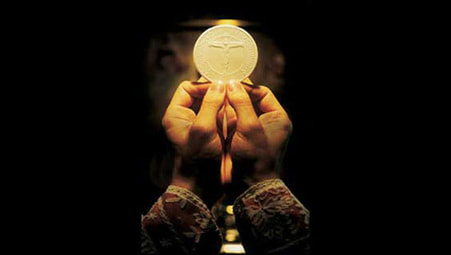
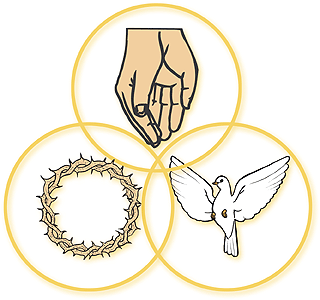
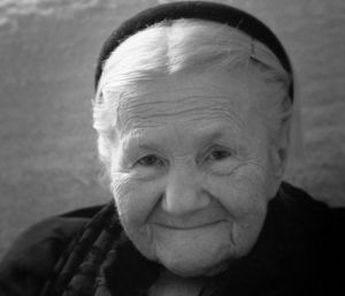
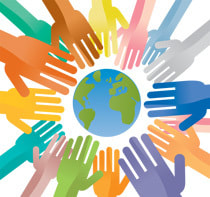
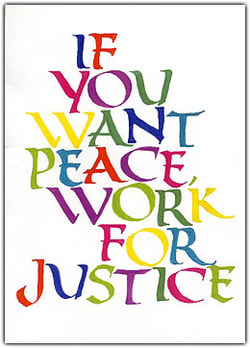



 RSS Feed
RSS Feed